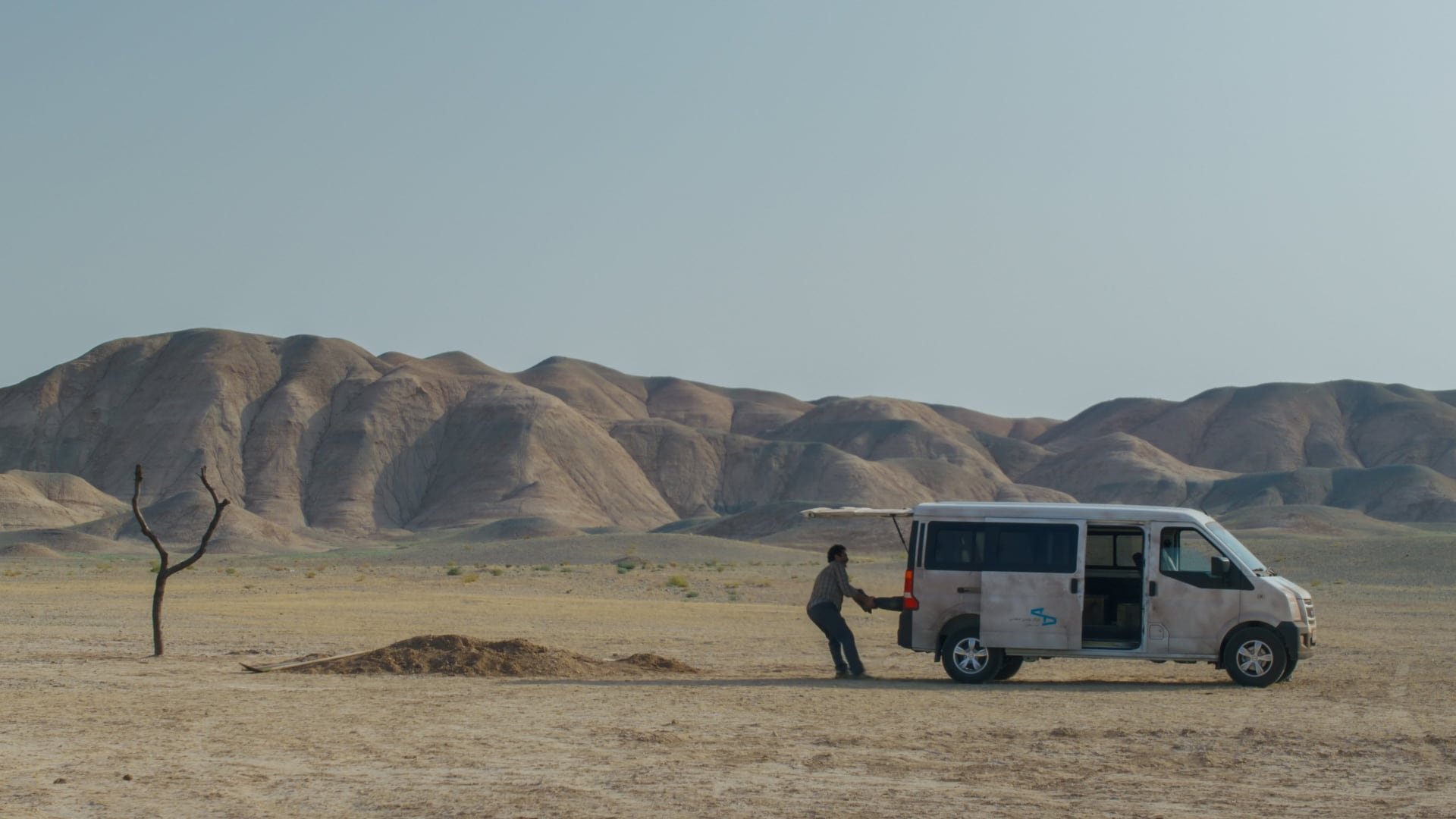It was just an accident
It Was Just an Accident (2025)
Directed by Jafar Panahi
Certain sounds will always haunt me. Sometimes it’s the omission of the same sound that I would hear daily that will feel like a cavern burrowing deep within me. Other times, it’s the specific pitch of someone’s voice that lingers heavily on my mind. When experiencing the fatigue and stress of everyday mundanity, I play a saved voicemail of their last message to be reminded of all the bad and all the good, but never to forget either.
Navigating through the Seattle bus system on a Friday afternoon in the pouring rain (on Halloween no less; talk about a spooky way to pass the time), I made it to the SIFF Uptown theatre where I had the distinct pleasure of experiencing Jafar Panahi’s astonishing new film. The Palme d’Or winner is a striking aural exercise from a filmmaker who has seen all of his senses stifled and quite nearly snuffed out over the past decade. From his initial house arrest that produced This Is Not a Film to his subsequent exercises that forced the filmmaker to shoot covertly like Taxi and Closed Curtain, Panahi’s imprisonment and surveillance by the Iranian government has stunted his capabilities and hindered his resources. It Was Just an Accident, Panahi’s most expansive film in over two decades, examines the multi-faceted concerns in which his participation in the Iranian Green Movement rendered him an enemy of the state, and the balancing act that comes with seeking vengeance, despite an all-consuming desire to move forward.
The premise is simple yet incredibly affecting; Eghbal (Ebrahim Azizi) is driving his pregnant wife and adorable daughter home from an event at night on the outskirts of Tehran. After accidentally hitting a dog, their car seizes up and requires maintenance. Stuck on the road near what appears to be a taxi depot, they ask for help. It’s here where we see Vahid (Vahid Mobasseri), who disguises his voice and follows the family back home once their car is repaired. He continues his surveillance into the following morning, where he follows Eghbal and his towed car into the city. Without dialogue for much of these extended sequences, the uncertainty of what we’re observing bears a striking resemblance to Kiyoshi Kurosawa’s horror film Cure, which finds a serial killer pensively observe his prey in long, extended sequences. Mercifully, Vahid captures Eghbal and drives him into the desert, where he intends on burying the man alive.
The whys and whences emerge strategically, as Vahid believes that Eghbal was responsible for his imprisonment and torture during the Iranian government’s Green Movement crackdowns. Bound and choking on sand, Eghbal insists Vahid has the wrong man. The prosthetic leg, the mark linking Eghbal to his past known as “Peg Leg”, is from a recent injury. Doubt creeps in and Vahid examines the wound - he’s right, the wound still appears relatively fresh. With that doubt in his mind, he knocks out Eghbal, stows him away in a box within his van, and drives around to former imprisoned revolutionaries - people who are truly at the start of rebuilding their lives within society - to attempt to confirm the identity of the man.
At its most rudimentary, Panahi’s film operates like a moral puzzle along the lines of Asghar Farahadi’s excellent early films like About Elly or A Separation. But more broadly, It Was Just an Accident speaks to something much more specific about our responses to everyday injustices and all-encompassing fascism. The various characters that will accompany Vahid throughout his journey, from a former revolutionary-turned-photographer to a bride and groom, all embody the ideological spectrum that feels so much more pronounced in today’s American culture. When they encounter the hot-headed Hamid (Mohamad Ali Elyasmehr), his fury serves to undercut his reliability, wherein he initially confirms Eghbal’s identity, only to confess what we all knew: all the people who encountered “Peg Leg” were blindfolded and forced to feel-up his leg, relying on only sound and touch to verify who he could actually be. It’s not until Panahi’s absolutely killer two-pronged ending that any measure of closure is afforded and even then: it’s positively bittersweet.
I’ve examined a lot of my past behaviors, and my relationship to what forgiveness equates to may be very different to what you, reader, are accustomed to. It’s a reality that took a while to accept. What I see as the brilliance of Panahi’s ending is the agonizing lengths in which victim and assailant must communicate in order to find some modicum of peace within each other to move forward. This may be a controversial opinion and as such, there are caveats, nuances, and asterisks associated with it. To believe any one action could render absolution on all accords could best be described as naive. I can only speak for myself, and all I know is that I will be haunted by the actions of my past, and actions done upon me by those I cared for. But I bear no ill-will or hatred toward them; instead, I live with the ghosts, listen through the static for feedback, acknowledge the past, but turn my back to them - knowing that my sight remains on what’s forward. Panahi, I would like to think, agrees.
